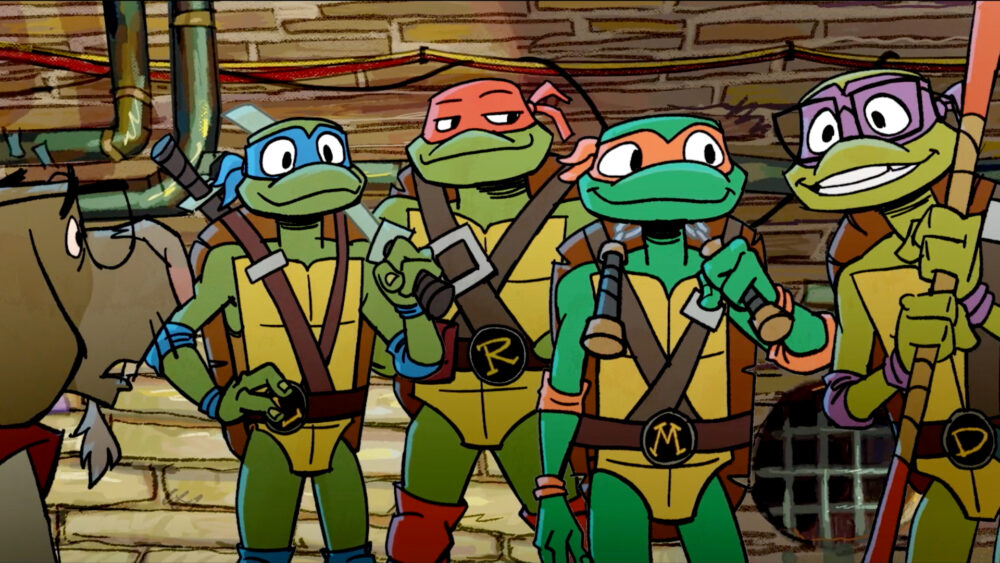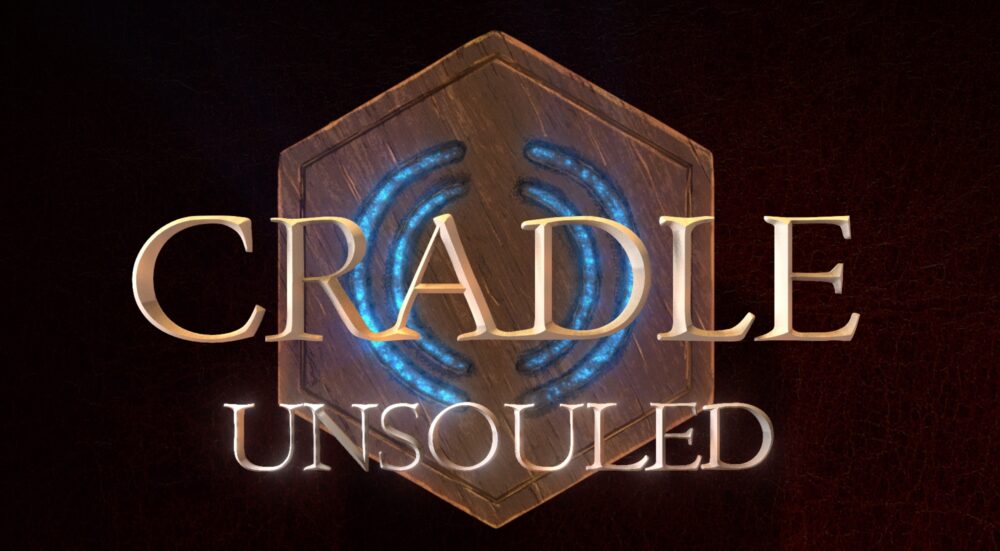“A Dark Knight: My Three Soups” is McKenzie’s second crack at the director’s chair for the veteran show, Gotham . The first instance was season 3, episode 16: “Heroes Rise: These Delicate and Dark Obsessions”. That episode had rave reviews and warranted a return to now direct much more in the series.
McKenzie did a wonderful job in capturing the chemistry between characters such as Harvey and Gordon, Barbara and Bruce as well as the villains treating each one equally showing the dichotomy of sanity and insanity and how personal vendettas and our past relationships affect our decision making.

GOTHAM: Guest star Benedict Samuel in the ÒA Dark Knight: One Of My Three SoupsÓ episode of GOTHAM airing Thursday, March 29 (8:00-9:00 PM ET/PT) on FOX. ©2018 Fox Broadcasting Co. Cr: David Giesbrecht/FOX
The tone for this episode was very dark and serious. Being part of the show gave McKenzie an insiders point of view and the ability to work with all the departments to create this menagerie of madness with elements from lighting, mood, even wardrobe to ensure that not only did it reflect and amplify the characters in the story but also keep the storytelling consistent without the crazy tangents that most shows suffer.
The change of attitudes was needed as situations got serious, and that was more fitting when this season where situations are darker than usual. One can simply just add ridiculous crazy things haphazardly and with great joy is to come great sadness. Mad Hatter was no longer jovial but more sinister and bloodthirsty. Jerome had his own personal affairs to get in order. McKenzie made us aware of the humanity of the characters and how it makes a big difference for them to be driven by their past that got them to their current state of mind. Even the most logical and calculated beings have a little bit of crazy inside.

GOTHAM: Ben McKenzie in the ÒA Dark Knight: One Of My Three SoupsÓ episode of GOTHAM airing Thursday, March 29 (8:00-9:00 PM ET/PT) on FOX. ©2018 Fox Broadcasting Co. Cr: David Giesbrecht/FOX
Being an actor first, McKenzie was able to truly reflect on the dynamic of Harvey and Gordon Harvey pressured Gordon to keep his pride in check was a great way to start since that is easier said than done. If we wanted more from Gordon, then dealing with this lie was the next step to take for a guy who can sometimes fail to see the big picture. It showed growth on Harvey’s end that he could at a time like this.
Barbara finally addresses a gift Ra’s al Ghul left her. Now we know what happened to Barbara after her death, and that changed everything about her arc moving forward. Bruce and Barbara move forward with a continual reminder to Bruce that it’s not all about him.
For a show based on the Batman cannon things are shaping up and are getting exciting as we move forward into the series understanding what the destiny of young Bruce Wayne needs to become and how James Gordon will keep Gotham on its toes till that time arrives.

Events
Paramount+ Reveals Official Main Title Sequence for the Upcoming Series TALES OF THE TEENAGE MUTANT NINJA TURTLES

During the TALES OF THE TEENAGE MUTANT NINJA TURTLES panel earlier today at San Diego Comic Con, Paramount+ revealed the official main title sequence for the series. The sequence is composed by EMMY® nominee, Matt Mahaffey, known for his work on Sanjay and Craig, Rise of the Teenage Mutant Ninja Turtles, and Rise of the Teenage Mutant Ninja Turtles: The Movie and much more.
From the studios of the Mutant Mayhem film, the all-new Paramount+ original series TALES OF THE TEENAGE MUTANT NINJA TURTLES explores the adventures of everyone’s favorite pizza-loving heroes as they emerge from the sewers onto the streets of NYC. Leo, Raph, Donnie and Mikey are faced with new threats and team up with old allies to survive both teenage life and villains lurking in the shadows of the Big Apple. The series is produced by Nickelodeon Animation and Point Grey Pictures.
TALES OF THE TEENAGE MUTANT NINJA TURTLES is executive produced by Chris Yost (The Mandalorian, Thor: Ragnarok) and Alan Wan (Blue Eye Samurai, Rise of the Teenage Mutant Ninja Turtles, Teenage Mutant Ninja Turtles [2012 Series]). Production is overseen for Nickelodeon by Claudia Spinelli, Senior Vice President, TV Series Animation, Nickelodeon, and Nikki Price, Director of Development and Executive in Charge of Production.
In addition to the upcoming new series, stream all things Turtles on Paramount+.
Events
Comic-Con 2024: Those About to Die Activation
Events
DISNEY+ CASTS DANIEL DIEMER AS FAN-FAVORITE ‘TYSON’IN SEASON TWO OF “PERCY JACKSON AND THE OLYMPIANS”

in Hall H at San Diego Comic-Con, Rick Riordan and Disney+ revealed that Daniel Diemer (“Under the Bridge”) will star as fan-favorite cyclops “Tyson” in the epic adventure series “Percy Jackson and the Olympians.” Diemer joins Walker Scobell (Percy Jackson), Leah Sava Jeffries (Annabeth Chase) and Aryan Simhadri (Grover Underwood) as a series regular. The Disney+ Original series from Disney Branded Television and 20th Television will start filming its second season next week in Vancouver.
Season two of “Percy Jackson and the Olympians” is based on the second installment of Disney Hyperion’s best-selling book series titled “The Sea of Monsters” by award-winning author Rick Riordan. In the new season, Percy Jackson returns to Camp Half-Blood one year later to find his world turned upside down. His friendship with Annabeth is changing, he learns he has a cyclops for a brother, Grover has gone missing, and camp is under siege from the forces of Kronos. Percy’s journey to set things right will take him off the map and into the deadly Sea of Monsters, where a secret fate awaits the son of Poseidon.
Diemer stars as Tyson – a young Cyclops who grew up all alone on the streets, and finds it difficult to survive in the human world. Shy and awkward, with a heart almost as big as he is, Tyson soon discovers that Poseidon is his father, which means Percy Jackson is his half-brother… and that Tyson may have finally found a home.
Diemer recently starred in the Hulu limited series “Under the Bridge” based off the critically acclaimed book of the same name and a tragic true story of a missing teen girl in Vancouver in 1997. He will next star in the indie “Thug” opposite Liam Neeson and Ron Perlman for director Hans Petter Moland. Daniel was recently seen as the lead in the indie “Supercell” opposite Alec Baldwin and Skeet Ulrich and the lead in the film “Little Brother” opposite Phil Ettinger and JK Simmons. Daniel can also be seen in the Netflix series “The Midnight Club” and recently starred as the male lead in the breakout hit Netflix feature “The Half Of It” from producer Anthony Bregman and director Alice Wu. He is a graduate of Victoria Academy of Dramatic Arts in Vancouver.
Created by Rick Riordan and Jonathan E. Steinberg, season two of “Percy Jackson and the Olympians” is executive produced by Steinberg and Dan Shotz alongside Rick Riordan, Rebecca Riordan, Craig Silverstein, The Gotham Group’s Ellen Goldsmith-Vein, Bert Salke, The Gotham Group’s Jeremy Bell and D.J. Goldberg, James Bobin, Jim Rowe, Albert Kim, Jason Ensler and Sarah Watson.
The first season of “Percy Jackson and the Olympians” is available on Disney+
-

 Interviews1 day ago
Interviews1 day agoInterview With Heroes & Villains Creative Director Doug Johnson
-

 Streaming1 day ago
Streaming1 day agoApple TV+ announces season two for delightful kids and family series “Camp Snoopy
-

 Events1 day ago
Events1 day agoThat’s My E Coverage Of The Adult Swim’s Pirate Parrrty
-

 Events10 hours ago
Events10 hours agoParamount+ Reveals Official Main Title Sequence for the Upcoming Series TALES OF THE TEENAGE MUTANT NINJA TURTLES
-

 Events13 hours ago
Events13 hours agoDISNEY+ CASTS DANIEL DIEMER AS FAN-FAVORITE ‘TYSON’IN SEASON TWO OF “PERCY JACKSON AND THE OLYMPIANS”
-

 Events12 hours ago
Events12 hours agoComic-Con 2024: Those About to Die Activation
-

 Interviews14 hours ago
Interviews14 hours agoComic-Con 2024: Will Wight’s Cradle


